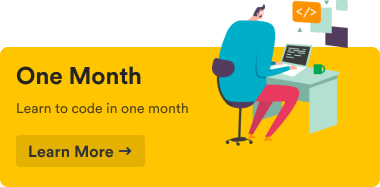Seven Industries That Hire People With Programming Skills

Programming experience helps candidates stand out on the job market. Adding in-demand programming languages like Python to a resume makes it more attractive to hiring managers in many industries even outside the technology sector. These seven industries that hire people with programming skills also offer above-average salaries and millions of job openings.
Two recent studies from Burning Glass show the many industries that hire people with programming skills. A 2016 report on the expanding demand for coding skills and a 2017 report on how computer science skills spread in the job market provide valuable information for job seekers.
These reports found that nearly half of all high-income jobs, defined as those paying over $57,000 a year, commonly look for programming skills when hiring. When analyzing jobs that pay more than $15 an hour, Burning Glass found that jobs requiring coding skills pay more: $84,000 on average versus $62,000, a bonus of $22,000 for occupations that require programming experience. Finally, in 2015, there were 7 million job openings in industries that look for programming skills.
The premium on programming skills doesn’t just help people in the technology sector. In fact, half of job openings that require programming skills are in industries outside of IT. Here are seven industries that hire people with programming skills.
Design
A growing number of design jobs require programming skills. Job postings for graphic designers, web designers, and UI/UX designers often request programming knowledge. Programming skills help designers work with digital materials and use web development or motion graphic tools.
Many of these positions do not require a degree in computer science. While 15% of UI/UX design postings ask for a degree in computer science, only 6% of web design positions and 1% of graphic design positions list computer science among the degree requirements. Self-taught programmers can thrive in the design sector because many employers do not expect traditional training in programming.
Designers in fields completely unrelated to technology also benefit from programming experience. Burning Glass reports that over half of set designers use 3D modeling programs in their jobs.
Finance
Finance professionals rely on programming languages like Python for risk management, pricing, and trade management programs. HackerRank surveyed over 1,000 finance and financial technology coding challenges to identify the programming skills employers want. In both fields, Python, Java, and C++ ranked at the top of the list.
HackerRanker declares Python the “king of mathematical programming,” making it a strong fit for financial technology, or FinTech, professionals. Between December 2016 and July 2018, the number of finance job postings requesting candidates with Python experience almost tripled, jumping from 270 to over 800. Python helps analysts and traders to create quantitative models, design analytical tools, and craft models. It’s also useful for building cryptocurrency markets and machine learning.
Healthcare
The medical field rewards candidates with programming skills. Many positions, including medical researchers, health information managers, and even physicians benefit from programming experience.
Medical researchers in genetics research rely on programming to analyze genetic data. Many pharmaceutical companies rely on computer programmers and data analysts to develop new drugs. Hospitals and other medical facilities rely on programmers, database administrators, and health information managers to manage their computer systems and medical information.
In an article titled “Why physicians might want to learn computer programming” in Surgical Neurology International, Dr. Pieter L. Kubben explains how he used programming to design an online collaboration tool, create an app called NeuroMind, and promote clinical decision support systems. Programming skills help healthcare run more effectively and efficiently.
Marketing
As marketing continues to expand into the digital realm, employers look for candidates with programming skills. In marketing, professionals work as product managers, market research analysts, and digital marketing specialists benefit from programming experience.
Product managers, in particular, often blend marketing with technical skills as they design and create new products. Many of the fastest growing skills in marketing connect with digital marketing and require programming skills, including software engineering, which grew 175% from 2014-2016, and HTML skills, which grew 234%.
Business
Business is a broad category, but many business careers require data analysis. As Burning Glass reports, many jobs requiring analysis seek candidates with programming experience. Business analysts, data scientists, and statisticians all benefit from programming skills.
Burning Glass found that many of the fastest growing skills for data analysts between 2014-2016 involved programming. For example, data analyst positions saw a 153% increase in job postings requiring Python skills in a two year period. A high paying field, business also represents one of the many industries that hires people with programming skills.
Manufacturing
In the manufacturing sector, engineers benefit from programming skills. In engineering, the six highest paying skills are all related to programming. Experience with Python ranks as the best paid engineering skill, with an average advertised salary of over $103,000. Python also ranked as the fastest growing skill for engineers, with demand more than doubling from 2014 to 2016.
Engineers hold several job titles, such as mechanical engineer and electrical engineer. While computer hardware engineers need programming skills, many other fields, including chemical engineering and mechanical engineering, also look for programming experience. Most engineering jobs require a degree in engineering. Adding programming skills can help engineers pursue higher paying job opportunities.
Technology
The technology sector continues to hire job applicants with programming skills. Within IT, fields such as big data, web development, and cloud computing offer the fastest growth and highest compensation. Professionals looking for jobs in web development, for example, often need strong coding skills. Web content also relies on programming languages like Python and Java.
Not surprisingly, IT jobs are the most likely to look for candidates with a computer science degree. However, in the majority of job postings for positions like software developer, web developer, and database administrator, hiring companies did not list a computer science degree among the requirements.
Now that you know the industries that hire people with programming skills . . .
How does this information help job seekers?
The data provided by Burning Glass on industries that hire people with programming skills helps people planning their careers or considering a career change. In many industries, hybrid skills demonstrate flexibility and adaptability, qualities employers want. Programming skills benefit candidates in diverse fields like finance, marketing, healthcare, and manufacturing.
Adding programming skills can help professionals in nearly any industry stand out on the job market.
Want to learn to program? Register for my free Self-Taught Coder Masterclass where I cover how I went from a novice to a software engineer at eBay in less than one year.






